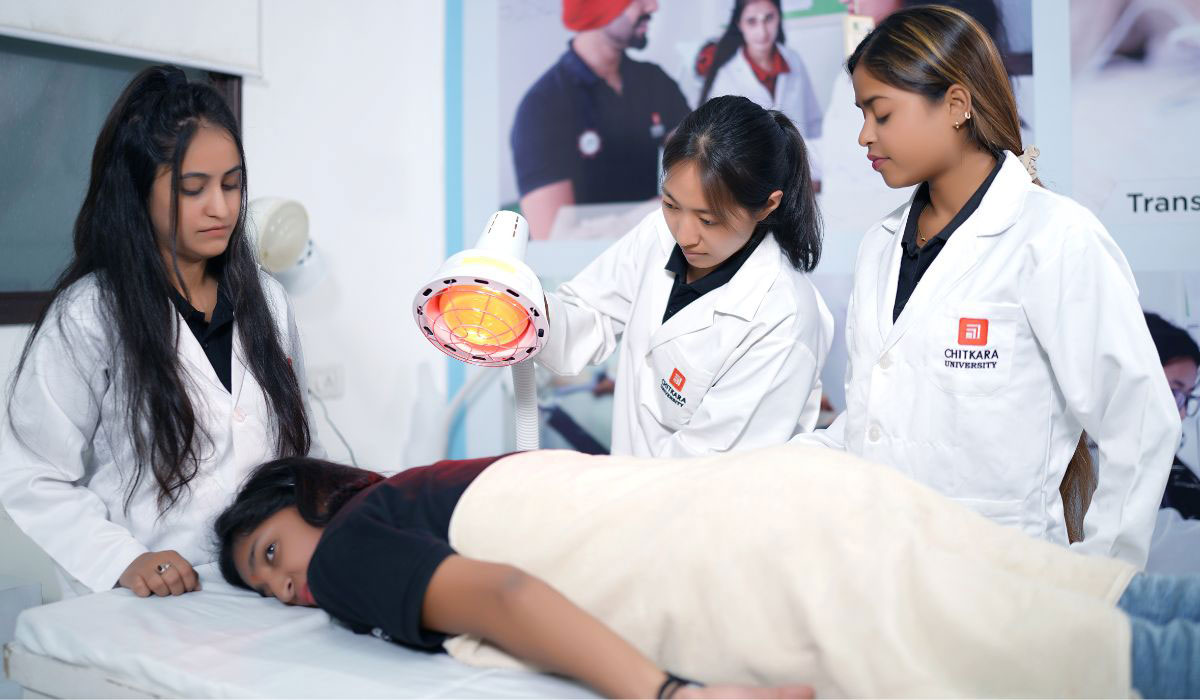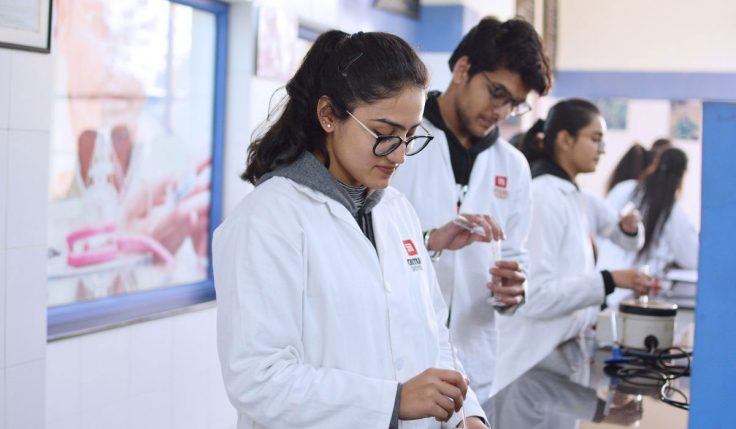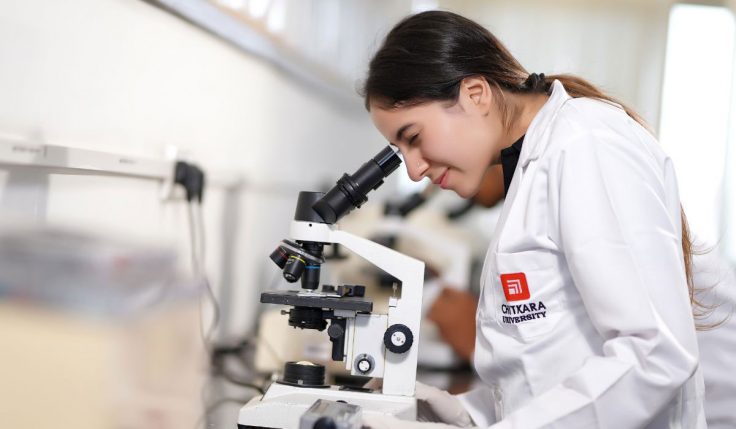In today’s world, health and wellness have taken centre stage and the role of physiotherapy has emerged as a cornerstone in promoting holistic wellness. Completing a Bachelor of Physiotherapy can equip graduates with the knowledge and skills to make a significant impact on individuals’ lives and communities.
A Bachelor of Physiotherapy not only opens doors to a rewarding career but also plays a vital role in improving the quality of healthcare delivery. In this blog, we will go deeper into how a BPT degree empowers health and transforms the lives of the graduates who pursue this program.
If you are interested in contributing towards the empowerment of health and wellness then keep reading to know more.
What is Physiotherapy?
As a vital healthcare discipline, Physiotherapy is a healthcare profession that is mainly focused on preventing, diagnosing, and treating physical disabilities, movement dysfunctions, and pain. It uses evidence-based practice for restoring and maintaining optimal physical functions.
The role of Physiotherapy encompasses various specialties
Musculoskeletal, Neurological, cardiopulmonary, Sports, Paediatrics, Geriatrics, Women’s health, and community-based Rehabilitation. Physiotherapists also use a wide range of techniques including manual therapy, various neurological approaches, exercise therapy, and electrotherapy, for treating a wide range of conditions from sports injuries to chronic illnesses such as Arthritis, Stroke, Chronic Obstructive Pulmonary disease to the health of women, children, and elderly population.
Pursuing a Bachelor of Physiotherapy (B.P.T.) program enables graduates to master the international standards of the Physiotherapy industry with a balanced focus on academic, clinical, and research training followed by six months of compulsory internship to ensure adequate exposure and application of physiotherapy treatment/techniques for various health conditions. Let’s see how this program encourages Physiotherapists to empower health.
1. Comprehensive Curriculum: The Bachelor of Physiotherapy program is based on strong fundamentals of Human Anatomy, Physiology, Biomechanics, Pathology, Therapeutic techniques, and an understanding of various medical and surgical conditions. The Curriculum is also enriched with subjects focusing on Human values, Professional Ethics, Clinical Reasoning, and Evidence-based practice. The Bachelor of Physiotherapy program spans over four and a half years which includes a combination of classroom instruction, laboratory work, clinical practice, research work, and a six-month compulsory internship.
Graduates gain a strong understanding of the structure and function of the human body, mechanics of movement, and clinical experience in diverse healthcare settings. The robust educational framework ensures that the graduates are also well-equipped to assess, diagnose, and treat a wide range of physical conditions.
2. Empowering Individuals: One of the most effective impacts of Physiotherapy is that it restores function and mobility in individuals who suffer from injuries, surgeries, and chronic conditions. The main aim of physiotherapy treatment is to make the patients as functionally independent as possible, improve their quality of life, and re-integrate them back into society. For example, a patient who is recovering from knee surgery might experience limited mobility and pain, and a Physiotherapist can design a personalized rehabilitation plan to improve strength, flexibility, and coordination to help the patient regain independence.
Physiotherapy is not merely limited to physical recovery but it also addresses psychological well-being. Many times, chronic pain and disability can lead to anxiety, depression, and decreased quality of life. By removing pain and physical discomfort symptoms, physiotherapists help in improving mental health and overall well-being.
3. Preventive Healthcare: Physiotherapy is not only limited to existing conditions but also to prevent future injuries and illnesses. Physiotherapists educate patients on proper body mechanics, body posture, and ergonomics which are all important for preventing musculoskeletal problems.
For instance, people who have desk jobs suffer from back and neck pain because of poor body posture. Physiotherapists can offer guidance on maintaining good posture, timely intervals for exercises/ stretching at workplaces, and recommend exercises important for strengthening the core muscles while reducing the risk of pain and injury.
With the promotion of preventive healthcare, Physiotherapists can help reduce the burden on healthcare systems. Preventive measures decrease the incidence of injuries and chronic conditions leading to fewer hospital visits and healthcare costs. This approach benefits individuals and also contributes to the sustainability of healthcare resources.
4. Specialized Fields: After a Bachelor of Physiotherapy degree, graduates can make the most of diverse career opportunities in specialized fields including Musculoskeletal Physiotherapy, Neurological Physiotherapy, Cardiovascular and Pulmonary Physiotherapy, Sports Physiotherapy, Paediatric Physiotherapy, Geriatric Physiotherapy, Women’s Health, and Community Based Physiotherapy. All of these fields address unique patient needs and require expertise.
Based on their interest, graduates can go ahead and pursue any of these fields. These specializations make a lasting difference in many population groups catering to specific health needs and improving the overall quality of life.
5. Solving Healthcare Challenges: As healthcare professionals, Physiotherapists play an important role in addressing global healthcare challenges specifically in regions with limited access to medical services. In rural areas, Physiotherapists serve as primary healthcare providers offering rehabilitation services and health education.
In addition, the global rise in chronic diseases such as Diabetes, Heart Disease, and Obesity as well as Sarcopenia and frailty, seen in the elderly population, also underscores the need for Physiotherapy. Physiotherapists are professionals who manage these conditions with exercise prescription, lifestyle changes, and patient education which further reduces the risk of complications and improves long-term outcomes.
Pursue Bachelors of Physiotherapy at Chitkara University
Physiotherapists are successful healthcare professionals who can diagnose and oversee the management of patients across all age groups to improve their physical and functional abilities. They help individuals maintain optimal health, mobility, and fitness, and prevent the onset of impairments, functional limitations, and disabilities related to diseases, and other medical conditions.
The majority of people nowadays suffer from a variety of musculoskeletal conditions and complain of several ailments like backache, stiff neck and shoulders, osteoarthritis, spondylosis, spondylitis, knee discomfort, etc. as a result of mechanization and a more sedentary lifestyle. Physiotherapists and general practitioners collaborate incredibly well to treat these dysfunctions. They support people in maintaining their best possible levels of health, fitness, and mobility as well as in preventing the development of impairments, functional restrictions, and disabilities brought on by illnesses, diseases, and other conditions.
Also, read this blog post: The Scope of Physiotherapy: Exploring Jobs, Responsibilities, and Salary
One of the most well-known physical therapy education programs in the nation is the Bachelor of Physiotherapy (BPT) program at Chitkara University. Chitkara University, which is frequently named among the best universities, is renowned for producing BPT graduates who set the standard for assisting individuals of all ages and stages in overcoming obstacles related to mobility, function, and movement. Our goal is to improve the field of physiotherapy through research, teaching, and professional assistance.
A pathway to empowering health, a Bachelor’s degree in Physiotherapy is a lot more than just an academic qualification. It is a pathway to changing lives. By restoring function, promoting preventive care, and addressing diverse healthcare needs, Physiotherapists play an important role in improving individual well-being and strengthening healthcare systems.
With the demand for skilled Physiotherapists growing, pursuing a BPT degree will promise a fulfilling career dedicated to making a strong impact on health and wellness. If you wish to pursue a career in the field of Physiotherapy, then enroll for a Bachelor of Physiotherapy at Chitkara to learn more.






